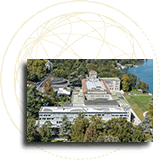18 December 2007
Cape Verde's other accession commitments
Besides Market access for goods and services.
See also:
> Press release: Lamy
welcomes Cape Verde's accession as another sign of confidence in the WTO
-
Foreign exchange and payments: Cape Verde would eliminate the prior authorization requirement for certain foreign exchange transactions by July 2008.
-
Privatisation programme and state enterprises: Cape Verde would ensure the transparency in its ongoing privatisation programme and would provide annual reports as long as the programme would be in place. All state owned or invested enterprises or enterprises with special privileges would operate on a commercial basis. Upon accession, Cape Verde would notify and provide information on the activities of these companies.
-
Pricing policy: Price controls would be applied in accordance with WTO principles and would take into account the interest of exporting WTO members. Cape Verde would publish a list of goods and services for which prices are determined by the government.
-
Framework for making and enforcing policies: Cape Verde would uniformly implement WTO provisions and the protocol of accession on the whole territory. Legal and institutional structures would provide for administrative and judicial review in conformity with WTO requirements.
-
Trading rights (the right to import and export): From the date of accession, any person or company from any member would be able to import goods into Cape Verde without conditions related to physical presence or investment in Cape Verde. Rights to import and export would be granted in a non-discriminatory basis. Commercial registration would only be for customs or fiscal purposes.
-
Fees and charges for services rendered: By December 2012, the current (ad valorem) customs user fees would be modified to comply with WTO rules. Fees, if introduced in the future, would be applied according to WTO principles.
-
Internal taxes (VAT, special tax on consumption, environmental tax): By June 2008, Cape Verde's laws and regulations relating to internal taxes and charges on imports would be in conformity with WTO obligations.
-
Import restrictions: Upon accession, Cape Verde would eliminate and would not reintroduce restrictions on imports or any other non tariff measure (quotas, bans, authorizations, licensing requirements, permits, etc.) that cannot be justified under WTO rules. The import licensing regime would be fully compatible with WTO rules.
-
Customs valuation: Full implementation of the custom valuation agreement by January 2011.
-
Rules of origin: Full implementation of the agreement on rules of origin by July 2008
-
Anti-dumping, countervailing duties and safeguard regimes: These measures would only be applied by Cape Verde in conformity with WTO rules.
-
Subsidies: Subsidy programmes would be in line with WTO obligations by January 2010. Prohibited subsidies that have been granted prior to accession would be eliminated by no later than January 2015.
-
Standards (TBT, SPS): Technical regulations or standards and conformity assessment procedures if introduced in the future would not constitute any unnecessary obstacles to trade. Cape Verde would fully implement the SPS agreement by January 2010.
-
TRIMs: Cape Verde would not maintain any measures inconsistent with the TRIMs agreement from the date of accession.
-
Free zones: Cape Verde would meet its WTO obligations in the free zones by January 2010.
-
Intellectual property: Cape Verde would apply the TRIPS agreement by January 2013. In light of the Doha Declaration on TRIPS and Public Health, the provisions related to the scope and use of patents and the protection of undisclosed information would be implemented by January 2016.
-
Additional charges: Cape Verde has also reserved its right to apply the ECOWAS1 Levy of 0.5% on imports.
Share
Note:
1. ECOWAS, the Economic Community Of West African States, is a regional group of fifteen countries, founded in 1975. Its mission is to promote economic integration in “all fields of economic activity, particularly industry, transport, telecommunications, energy, agriculture, natural resources, commerce, monetary and financial questions, social and cultural matters ...” Members are: Benin, Burkina Faso, Cape Verde, Côte d'Ivoire, Gambia, Ghana, Guinea, Guinea Bissau, Mali, Nigeria, Niger, Senegal, Sierra Leone, Togo and Liberia. Back to text
